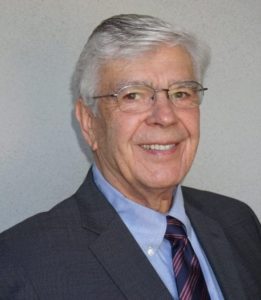WEST LIBERTY, W.Va., April 14, 2020 — In the fight against the global pandemic COVID-19, teamwork is crucial. No one knows this better than West Liberty University alumnus Fred Kinder, who owns a medical device company known as eHealthcare.
A resident of California, Kinder worked with his alma mater and others to bring a rapid test system to West Virginia.
Kinder does business throughout Asia and was familiar with a rapid test developed in China by Ustar. This test detects pathogenic microbes (such as COVID-19) from patient samples (nasal swabs, sputum, and other bodily fluids) in a matter of minutes.

“This is a state-of-the art test capable of rapidly detecting COVID-19 without the need of extracting the viral genetic material or any additional tedious steps,” explained Joseph Horzempa, Ph.D.
Horzempa is a WLU biology professor and microbiologist who was named West Virginia Professor of the Year in 2018 and has gained national attention for his research.
Interim Chair of the Biology Department and
Co-Program Director of the MA/MS in Biology program.
The teamwork began when Horzempa was approached by the Dean of the College of Sciences Karen Kettler and asked to help Kinder to complete the FDA permit documents to acquire a rapid COVID-19 test system used in China and bring it into the U.S.
“This began back in February, when Fred thought that with the impending infection likely to be spread to the U.S., it would be a good idea to increase the supply chain of detection systems in the USA,” said Horzempa.
International student Yijing Shen, who graduated from WLU this past December, helped by translating the Chinese documents given to the WLU team by Ustar, into English. Once Kinder and Horzempa had the translated text from Shen, and the documentation from Ustar, the technical portions of the FDA application involving molecular biology were added by Horzempa.
“This couldn’t have been accomplished without the excellent teamwork of West Liberty University’s professors, administration and Chinese student Yijing Shen. It is quite a process,” Kinder said.
But the task wasn’t complete yet. Kinder still needed a clinical lab to validate the test.
“Once we received word that the FDA approved shipment of the device and test kits to the U.S., we had to find a certified clinical lab to validate the test. I contacted my colleague at Marshall University, Donald Primerano, Ph.D, who I worked with through the NIH-funded WV-INBRE program. Don put Fred into contact with Microbiology Section Chief Traci Schauer, MLS (ASCP) at Cabell Huntington Hospital – which is affiliated with Marshall University Joan C. Edwards School of Medicine. Traci showed interest in receiving the system and test kits to validate the Ustar system,” explained Horzempa.
Cabell Huntington Hospital is a regional, 303-bed academic medical center located in Huntington, West Virginia and Schauer has been with the hospital for seven years. WV-INBRE is a state consortium of higher education institutions that encourages biomedical research, funded by the National Institutes of Health (NIH).
“The doctors, lab team and management at Cabell Huntington Hospital are exceptional. I appreciate the fantastic support from them and from WLU. It brings me great pleasure to help the citizens of West Virginia and surrounding states,” said Kinder, who grew up in Glen Dale, just a few miles south of Wheeling.
Because of this teamwork and effort, the Ustar COVID-19 detection system is in the validation process at this time. Schauer is hoping that it will be up and working sometime next week.
Currently, the only quick test Cabell Huntington Hospital has is in limited use due to reagent availability and reserved for critical patients and front line workers when possible.
“WLU’s College of Sciences is pleased to have played a small role in the fight against this global pandemic that has changed all our lives so dramatically. We congratulate everyone involved in the effort,” said Dean Kettler.
Kinder is a 1968 graduate of West Liberty with bachelor degrees in both chemistry and math, who began his career as an electronics engineer. He was inducted into its Alumni Wall of Honor last fall and is passionate about using technology to improve medical care.
WLU offers both undergraduate and graduate degrees in biology. To learn more about WLU’s biology program in the College of Sciences visit westliberty.edu/college-of-sciences.